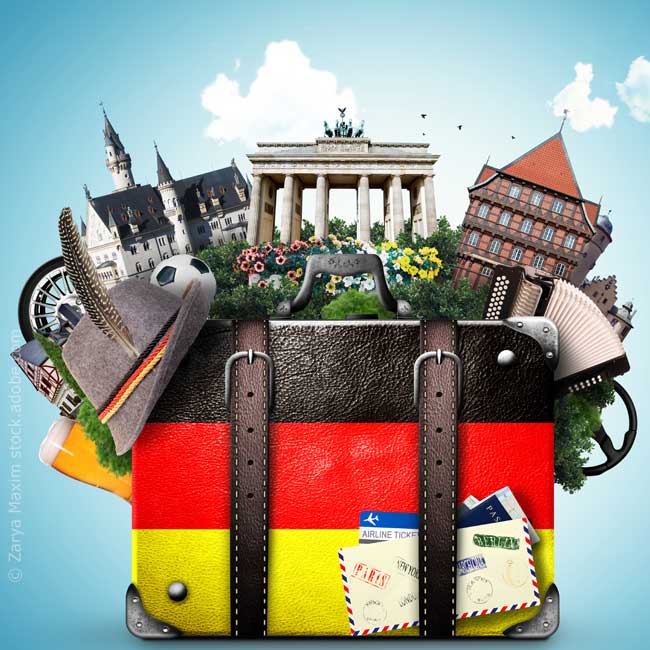
Recognition of kindergarten teachers from abroad – the recognition of foreign professional qualifications
You are kindergarten teachers? You have already worked abroad in this profession? And now you would like to have your foreign professional qualifications recognized in Germany?
Welcome to Germany. Unfortunately, the recognition of foreign professional qualifications is somewhat more difficult, especially for kindergarten teachers (Erzieher/in). This is mainly due to the fact that each federal state handles recognition somewhat differently. Whether you are a childcare worker, an educator or a graduate, the German bureaucracy is not always transparent. With this article, we want to answer important questions that may be buzzing through your head. The recognition of the work of foreign kindergarten teachers is mostly appreciated. However, the German system requires proof of education in accordance with the rules. If a woman or man completes the educator training abroad and then comes to Germany, he or she may quickly encounter difficulties. Some German states do not recognize foreign kindergarten teacher training, which leads to confusion and sometimes anger. Although they have sometimes worked as teachers for years after their training, their training is downgraded. According to the law, they are not allowed to work as recognized kindergarten teachers in Germany. There are different qualifications that are certified differently.
Why kindergarten teachers (Erzieher) from abroad come to Germany and want to work here
Many people who have trained as kindergarten teachers abroad think twice about coming to Germany. But it is worth it! There is a great shortage of teachers in Germany. The country is offering more and more childcare places, but there is a shortage of skilled workers. Experts estimate that up to 240,000 positions are unfilled. In some cases, headhunters are hired to look for suitable applicants. The profession of teacher is unfortunately too poorly paid by German standards. Nevertheless, more and more kindergarten teachers from abroad want to work in Germany. For many, the profession is a calling. Of course, the foreign professionals would like to receive the same salary. Unfortunately, the qualifications for educators from abroad are very often misunderstood, because the rigid state system hardly allows it otherwise. There are, however, institutions and facilities that would be willing to pay their new colleagues fairly and recognize their work. At the end of 2011, a law was passed that gives you a legal right to have your qualifications that you acquired abroad examined. However, there are still gaps.
Essential for recognition: prove qualifications
Germany is a country that likes to see everything on paper. So if you have completed a course of study or training abroad, you can submit this to the relevant ministry and apply for recognition as a kindergarten teacher. Which ministry is responsible for you depends on which federal state you want to work in. Unfortunately, there is currently no uniform regulation. Therefore, the ministries decide differently.
The state recognition as a kindergarten teacher
In Germany, state recognition is required in order to work as a kindergarten teacher and to be paid according to the collective wage agreement. Therefore, the first way is to go to the relevant ministry. There, all certificates and written qualifications are checked for equivalence. In addition, the personal suitability is checked according to § 5 SozBAG. Therefore an extended certificate of good conduct is necessary. If yours is without entries, a state recognition can be granted. Finally, your German language skills will be tested. In order to be able to talk to the children and parents, good language skills are necessary. Even if all other points give the green light, it could be that the application is rejected due to lack of German language skills. Therefore, learning the language is extremely important for the job as an educator in Germany.
Which ministry do I have to contact?
Depending on the federal state you have to contact a different ministry. Sometimes several ministries are responsible for training issues.
| Bundesland | Ministerium |
| Baden-Württemberg | Ministerium für Kultus, Jugend und Sport in 70173 Stuttgart |
| Bayern | Bayerisches Staatsministerium für Unterricht und Kultus in 80333 München |
| Berlin | Senatsverwaltung für Bildung, Wissenschaft und Forschung in 10178 Berlin-Mitte |
| Brandenburg | Ministerium für Bildung, Jugend und Sport in 14473 Potsdam
https://service.brandenburg.de/de/ministerium-fuer-bildung-jugend-und-sport-mbjs/11341 |
| Bremen | Senatorin für Bildung und Wissenschaft in 28195 Bremen |
| Hamburg | Hamburger Institut für Berufliche Bildung in 22083 Hamburg |
| Hessen | Hessisches Kultusministerium in 65185 Wiesbaden |
| Mecklenburg-Vorpommern | Ministerium für Bildung, Wissenschaft und Kultur in 19053 Schwerin |
| Niedersachsen | Niedersächsisches Kultusministerium in 30173 Hannover |
| Nordrhein-Westfalen | Ministerium für Schule und Weiterbildung NRW in 40221 Düsseldorf |
| Rheinland-Pfalz | Ministerium für Bildung, Wissenschaft, Jugend und Kultur in 55116 Mainz |
| Saarland | Ministerium für Bildung in 66117 Saarbrücken |
| Sachsen | Sächsisches Staatsministerium für Kultus und Sport in 01097 Dresden |
| Sachsen-Anhalt | Ministerium für Gesundheit und Soziales in 39114 Magdeburg für Erziehereinsatz, KIFÖG und Rechtsfragen.
Kultusministerium ebenfalls in 39114 Magdeburg für Erzieherausbildung, BFS, FS, Bachelor- Hochschulabteilung. |
| Schleswig-Holstein | Ministerium für Bildung und Kultur des Landes Schleswig-Holstein in 24114 Kiel https://www.schleswig-holstein.de |
| Thüringen | Thüringer Ministerium für Bildung, Wissenschaft und Kultur Abteilung Allgemein bildende Schulen, berufsbildende Schulen in 99096 Erfurthttps://bildung.thueringen.de/ |
Submit required documents
Here is a list to guide you on what documents you need to submit to each ministry. Please always inform yourself to be on the safe side! All documents must be submitted in German. If you need to have your documents translated, this should be done by authorized or public translators. English language documents, do not require translation. If a foreign document is not written in Latin script, it must contain a transliteration of the job title according to the ISO standard. You need the following documents:
- Application
- Curriculum vitae
- Personal document/passport
- Proof of intention to work in the respective state: copy of police registration; if you do not live in the state, you need a written proof that you want to work in the state (e.g. employment contract)
- Proof of foreign professional qualification: certificates from employers, courses, seminars or other further education
- Proof of work experience and other qualifications
- Marriage certificate: This is usually only required if you have had a change of name.
- Certificate of your country of origin
Working in child care
Caution! If you come to Germany as a foreign worker and would like to work in child care in a day care center, you should find out in advance in which federal states this is possible. In Baden-Württemberg, Thuringia, Bavaria and North Rhine-Westphalia, for example, the profession of child care worker is considered an apprenticeship. Unfortunately, this is not the case in the other federal states. There it is called Sozialassistentin/Sozialassistent or Sozialhelferin/Sozialhelfer and is not a recognized profession there. In Berlin or Brandenburg, for example, only recognized educators are allowed to work with children in a daycare center. You can still work as a childcare worker in the other federal states, but not in daycare centers.
Gleichstellungsantrag abgelehnt?
Wird keine Gleichstellung festgestellt, hast Du immer die Möglichkeit, eine Weiterbildung zu machen. Wird Dein ausländisches Berufszertifikat nicht anerkannt und Du nur als Kinderpflegekraft eingestuft, kannst Du jederzeit in Deutschland eine Erzieher-Ausbildung absolvieren. Es ist keine verschwendete Lebenszeit. In jeder Ausbildung kannst Du etwas dazulernen. Einige gehen diesen Weg, andere nicht. Andernfalls kannst Du jederzeit im zuständigen Ministerium nachzufragen und dir Informationen einholen.
Equality application rejected?
If no equality is determined, you always have the option of continuing your education. If your foreign professional certificate is not recognized and you are only classified as a child care worker, you can always complete a teacher training program in Germany. It is not a wasted lifetime. You can learn something in every training. Some go this way, others do not. Otherwise, you can always ask the relevant ministry and get information.
Studied abroad, work in Germany – the recognition of your degrees as a kindergarten teacher
You studied at university abroad and now want to work in Germany as kindergarten teacher in a daycare center? The first thing you have to do is to have your university degree (e.g. in social pedagogy) recognized in the corresponding federal state. The second step is to aim for a preferably dual training position as a kindergarten teacher. By the way, a previous internship in a facility makes a good impression. German language skills should be sufficient, otherwise it will be difficult to find an apprenticeship or a job.
It is always very important to find out in advance and in good time from the respective ministry what options are available if the application is rejected.
FAQs
What are the future prospects as an educator in Germany?
The future prospects for working as an educator in Germany are really great. Currently, the shortage of qualified educators is so great that educators will still be needed in 10-20 years.
Which federal states in Germany also recognize non-specialist vocational qualifications?
Currently, only the federal states of Berlin, Saxony, Hamburg, Schleswig-Holstein and Rhineland-Palatinate recognize non-specialized vocational qualifications. For more information, please contact the respective federal state.
In which federal states do I have to have previous pedagogical training before training to become an educator?
In Lower Saxony, Thuringia and Mecklenburg-Western Pomerania, two years of training in the social or nursing field is required.
Are there also opportunities to work in a daycare center without a pedagogical education?
At least there is the possibility to earn money as a career changer through PiA (practice-integrated training in North Rhine-Westphalia) and to complete the training as an educator at the same time. After three years, you will be a state-certified educator.
Can career changers also become kindergarten teachers?
In principle, this is possible, but it always requires further training and qualifications.
Looking for daycare center jobs or educator jobs? Erzieher Jobs und Erzieherinnen Jobs? Here are the job offers for: Erzieher Jobs Berlin • Erzieher Jobs München • Erzieher Jobs Düsseldorf • Erzieher Jobs Frankfurt • Erzieher Jobs Hamburg • Erzieher Jobs Dortmund • Erzieher Jobs Bremen • Erzieher Jobs Stuttgart • Erzieher Jobs Leipzig • Erzieher Jobs Dresden • Erzieher Jobs Köln • Erzieher Jobs Mainz • Erzieher Jobs Wiesbaden • Erzieher Jobs Bochum
Diese Artikel könnten Dich auch interessieren:
Categories: Erzieher-News, Kita und Karriere, Kita-Recht
Sorry, keine Kommentare erlaubt.




